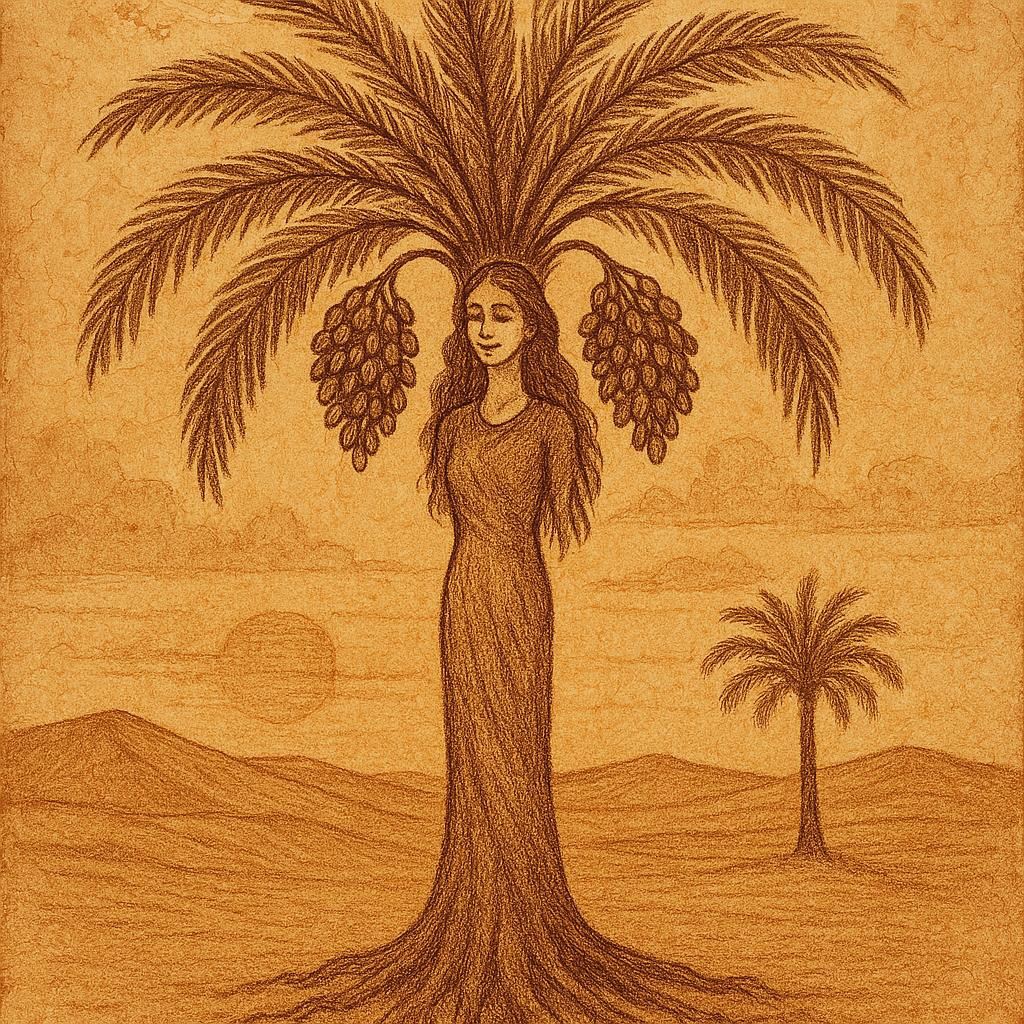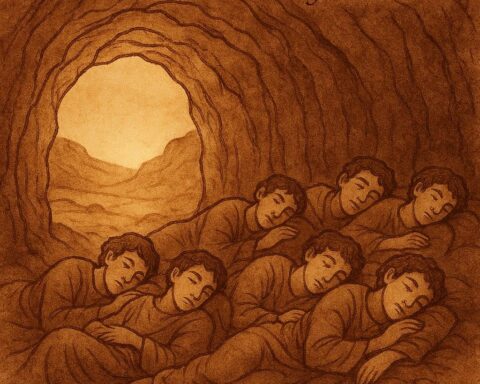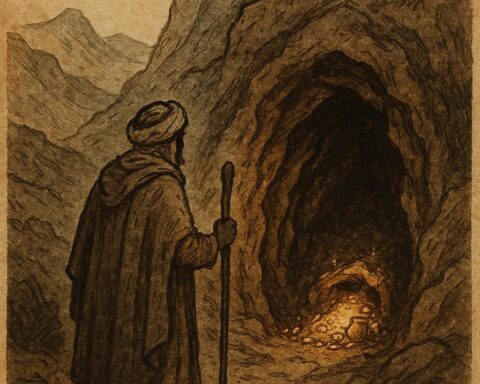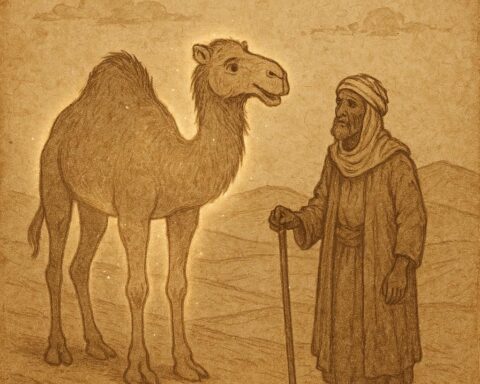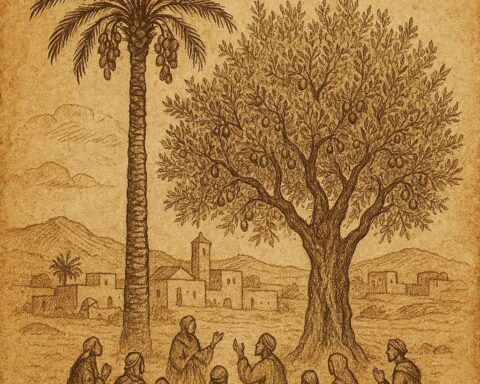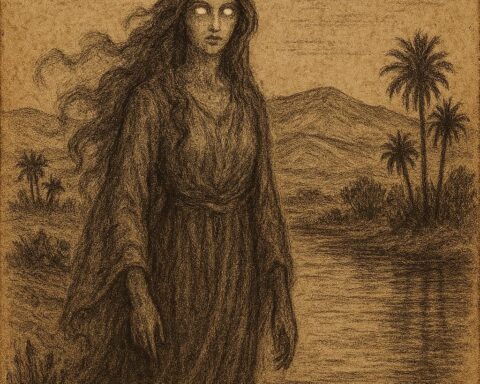In the vast, sun-scorched deserts of Tunisia, where golden sands stretch endlessly and the wind carries whispers of ancient tales, there lived a young woman named Leila. She was known in her village for her gentle heart, her kindness to all, and her unwavering spirit. Despite the hardships of desert life, she moved through the narrow streets with a quiet dignity, tending to her family and helping neighbors whenever she could. Yet Leila’s life was shadowed by an unyielding burden: her father had arranged a marriage to a wealthy man she did not love, a union dictated by custom rather than her heart.
As the wedding day approached, Leila’s anxiety grew. Each night, she would stare out at the desert horizon, listening to the soft rustle of the sand and the distant cries of desert foxes. She longed for freedom, for the chance to choose her own path, and she prayed fervently to the spirits of the desert for guidance. The elders of the village often spoke of spirits who protected those who acted with sincerity and humility, and Leila’s prayers were full of hope and desperation alike.
READ THIS:Aisha Kandisha of Tunisia
On the eve of her wedding, under a moon that hung like silver over the dunes, Leila fled into the desert. Her heart pounded as she ran, her feet sinking into the warm sand with each step. She called upon the spirits for help, offering her courage and honesty in exchange for escape. The desert grew quiet, as if listening, and a gentle wind rose to carry her hair and cloak like a protective veil.
Suddenly, as she collapsed from exhaustion near a small spring, Leila felt a warmth envelop her body. The earth beneath her feet glowed softly, and the air shimmered with unseen energy. She lifted her eyes and saw the desert spirits before her, luminous figures that radiated calm and power. “You have shown courage and purity of heart,” one spirit said. “Because you seek freedom without harm to others, we will grant your wish.”
In a swirl of golden light, Leila’s form began to change. Her legs rooted into the earth, her arms stretched upward, and her hair became long fronds that swayed gently in the desert breeze. Her voice, once human, could now be heard in the rustling of leaves and the whisper of the wind. When the transformation was complete, where Leila had fallen, a tall and majestic palm tree stood. Its trunk was strong and graceful, and its leaves spread wide to offer shade and comfort to travelers. Sweet dates hung from its branches, nourishing those who rested beneath it.
News of the miraculous palm tree spread quickly through the villages and along desert trade routes. Travelers told stories of the Palm Tree Bride, who had sacrificed her human life for freedom but continued to give generously to those in need. Merchants resting in the shade would share water and bread beneath her fronds, and weary nomads would eat the sweet dates, blessing the tree that had saved them from the desert’s harsh sun. In this way, Leila’s spirit lived on, transforming her escape into a gift for countless others.
The tale of the Palm Tree Bride also became a story of courage and resilience. It reminded villagers that true freedom often requires sacrifice, and that strength of character can lead to remarkable outcomes. Though Leila could no longer walk among her people, she remained a guardian of the desert, a symbol of hope and sustenance for travelers, and a testament to the power of prayer, courage, and unwavering conviction.
Parents told the story to their daughters, teaching them the importance of inner strength and the need to follow their hearts, even when faced with societal pressure. Elders reminded young men and women that the desert was a realm of spirits and lessons, where humility, courage, and respect could turn the impossible into reality. Over time, the Palm Tree Bride became more than a folktale; she became a living symbol of freedom, transformation, and the enduring human spirit.
Moral Lesson: The Palm Tree Bride teaches that courage, prayer, and selflessness can transform even the most desperate situations. True freedom often requires sacrifice, and those who act with integrity and resilience can leave a lasting, positive impact on the world around them.
Knowledge Check:
Who was Leila in the story?
Leila was a young woman who fled a forced marriage and sought freedom through prayer and courage.How did the desert spirits help Leila?
They transformed her into a palm tree, allowing her to escape and provide shade and fruit for travelers.What does the Palm Tree Bride symbolize?
She symbolizes freedom, resilience, courage, and selfless generosity.How did travelers benefit from Leila’s transformation?
They rested in her shade and ate her sweet dates, receiving nourishment and protection from the desert sun.What lesson does the story teach about courage and sacrifice?
True freedom and positive impact often require courage, selflessness, and sacrifice.Why did the villagers tell this story to their children?
To teach the values of inner strength, integrity, and following one’s heart even under societal pressure.
Source: Tunisian oral folktale. Recorded in Tales from Tunisia by S. H. Zwemmer (1930).
